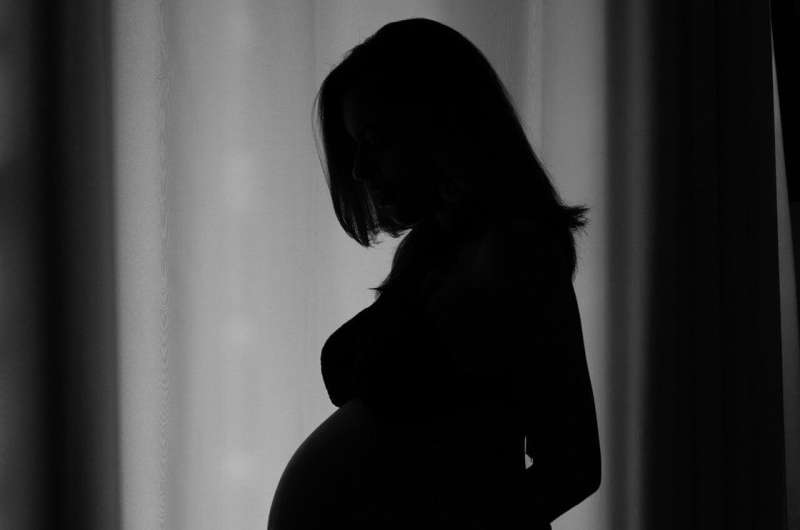This article has been reviewed according to Science X's editorial process and policies. Editors have highlighted the following attributes while ensuring the content's credibility:
fact-checked
peer-reviewed publication
trusted source
proofread
Unaffordable food putting moms-to-be at risk, research shows

Pregnant women who have limited access to affordable, nutritious, and healthy foods have a higher chance of developing both physical and mental health problems.
New research from Newcastle University has found that women who are what is termed "food insecure" are up to four times more likely to have poor mental health—such as stress, anxiety, and depression—than those who don't struggle to afford or access food.
The moms-to-be are also at increased risk of obesity, developing diabetes during their pregnancy and dental problems, the two studies published in PLOS Medicine and Obesity Reviews show.
In recent years, food insecurity has more than doubled in the UK and it is estimated that more than one in four households with babies and young children under four-years-old are affected.
'Shocking results'
Nicola Heslehurst, Professor of Maternal and Child Nutrition at Newcastle University, said, "We know how important it is for pregnant women to eat a nutritious and well-balanced diet for their own health and that of their developing baby.
"But when pregnant women experience food insecurity, it affects the quality of their diet because they can't afford increasingly expensive items such as fruit and vegetables, and, therefore, have to rely on cheaper poor nutritional quality foods.
"While we were expecting to see some health risks during pregnancy, the extent of those we found were quite shocking, especially for mental health, obesity, and pregnancy diabetes.
"These also have long-term implications, such as moms and their children being more likely to develop type 2 diabetes later in life.
"Our studies provide new evidence of the inequalities in pregnancy risks for women and babies when there is not access to affordable, nutritious, healthy food, and the need for more support to help reduce the impact of food insecurity."
Before COVID, fewer than one in 10 households in the UK were experiencing food insecurity. Now it is estimated that a quarter of households with babies and young children are food insecure, and almost half of all households with three or more children.
When people are food insecure, they go hungry, skip meals, or don't eat all day. Families can also experience financial problems that impact on bills, rent and heating costs, which further squeezes the household budget available for food.
Scientists analyzed data from high-income countries since the global financial crisis in 2008 to explore links between food insecurity and pregnancy health for mom and baby.
In these two studies, also involving Teesside University and King's College London, the experts collated the data to look for patterns and where there may be increased risk and need for support.
'Government help needed'
Professor Heslehurst said, "Any temporary emergency measures to address food insecurity, such as using food banks, are not going to address the underlying social and economic problems.
"We need much more financial support from the government to make sure that women and babies are protected from food insecurity during pregnancy."
Further research is needed by the team as there was a lack of data available on food insecurity and pregnancy health from the UK, with most of the studies analyzed generating from the U.S..
Professor Heslehurst added, "If we look at more data from the UK, where there is a lack of support available and rapidly rising rates of food insecurity, we might find the risks are worse than we currently think, and the need for support even greater."
Newcastle University researchers involved in these studies are Dr. Gina Nguyen, Dr. Stephanie Scott, and Letitia Sermin-Reed. The research is a Fuse, The Center for Translational Research in Public Health, project.
More information: Associations between food insecurity in high-income countries and pregnancy outcomes: a systematic review and meta-analysis, PLoS Medicine (2024).
Giang Nguyen et al, Food insecurity during pregnancy in high‐income countries, and maternal weight and diet: A systematic review and meta‐analysis, Obesity Reviews (2024). DOI: 10.1111/obr.13753





















